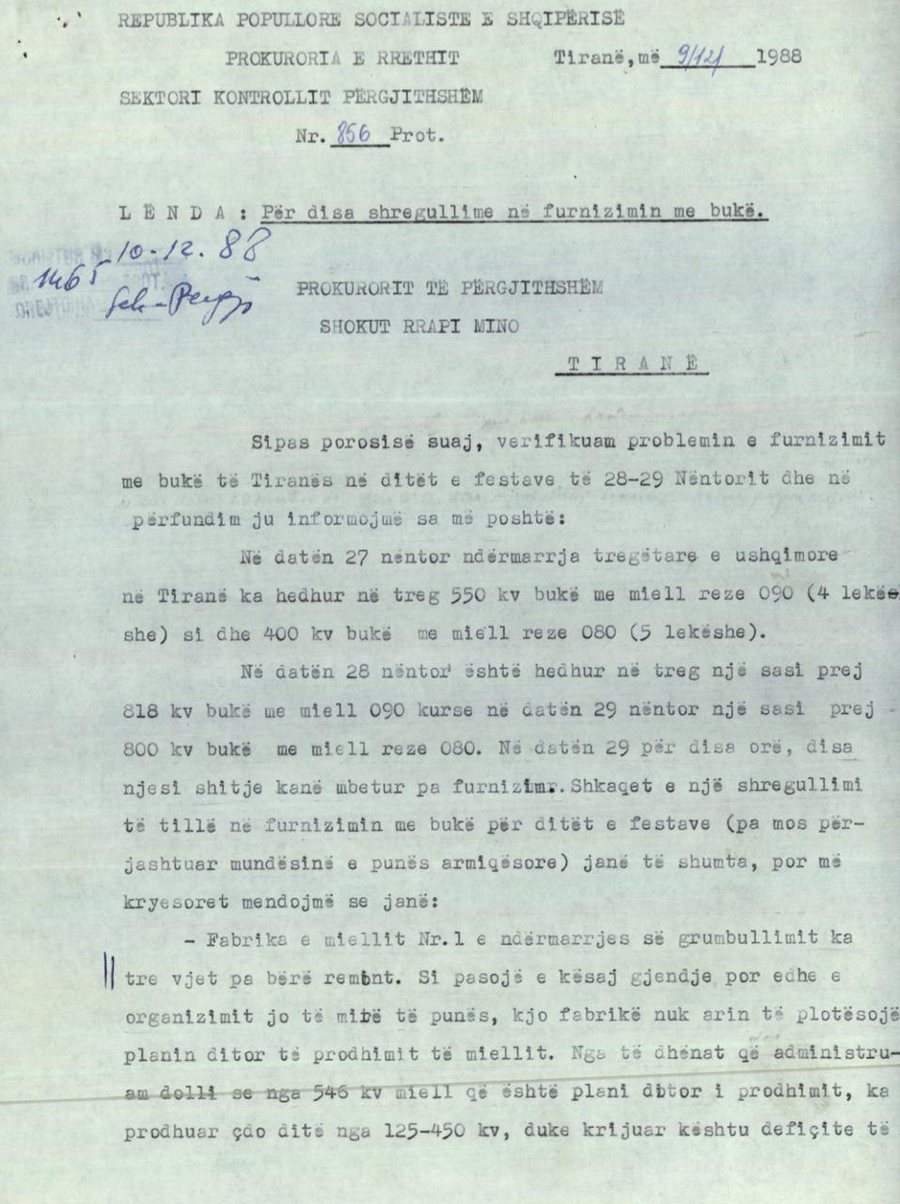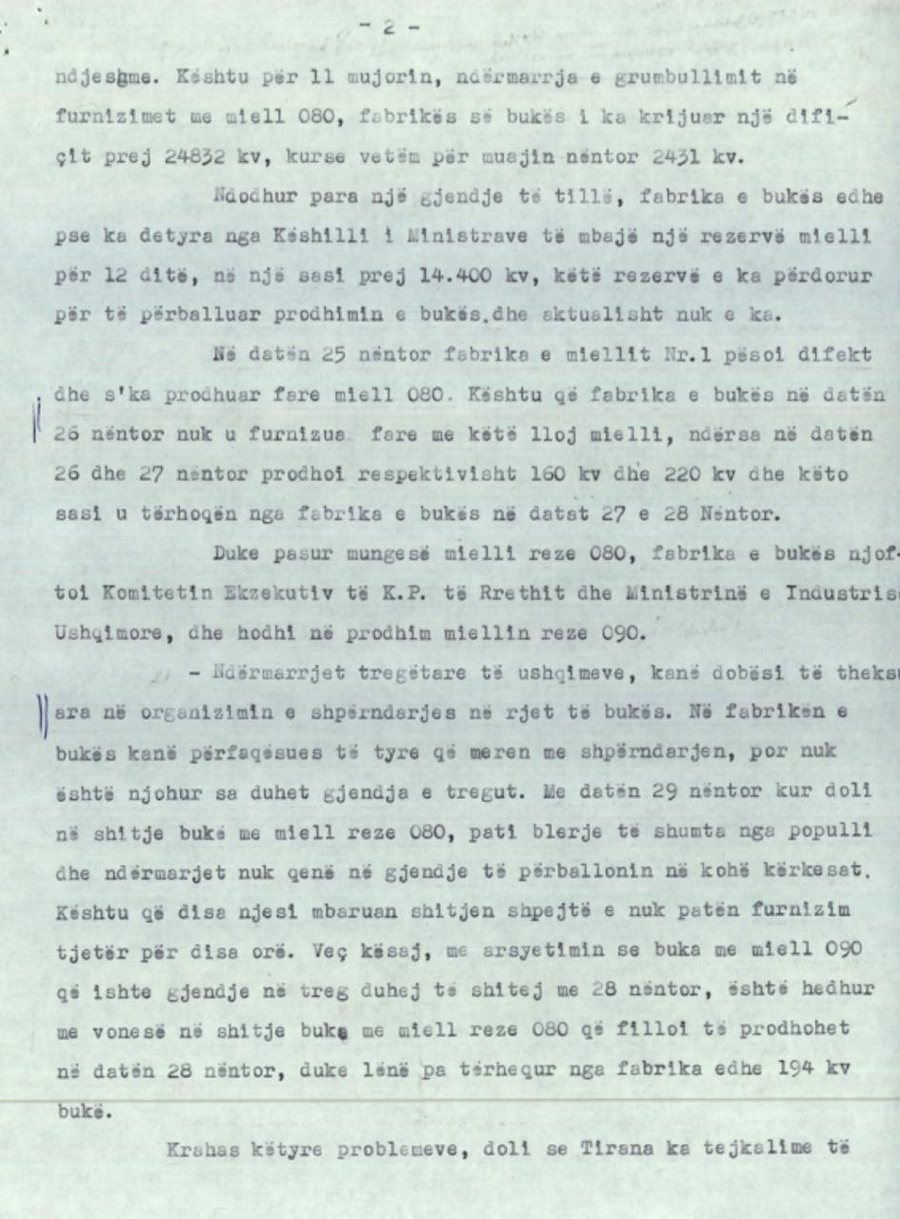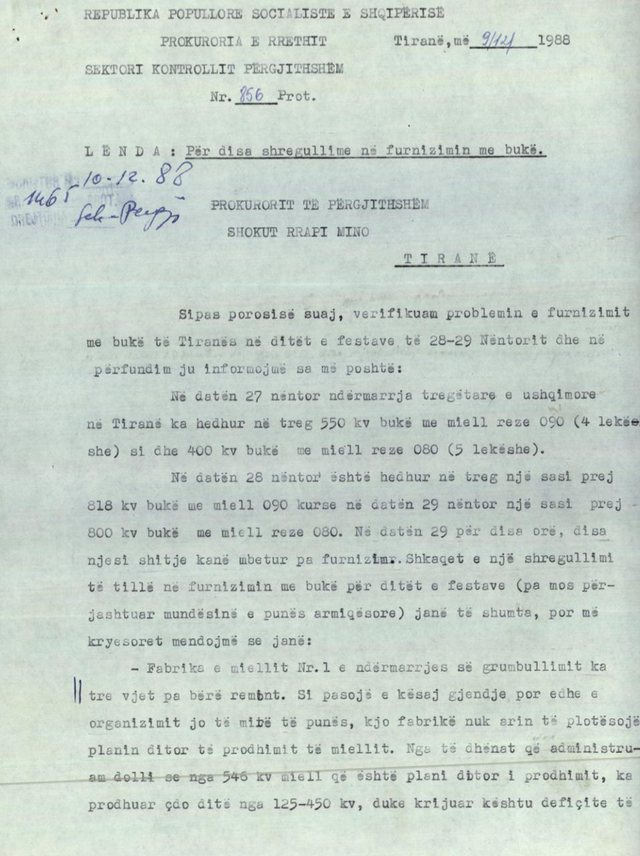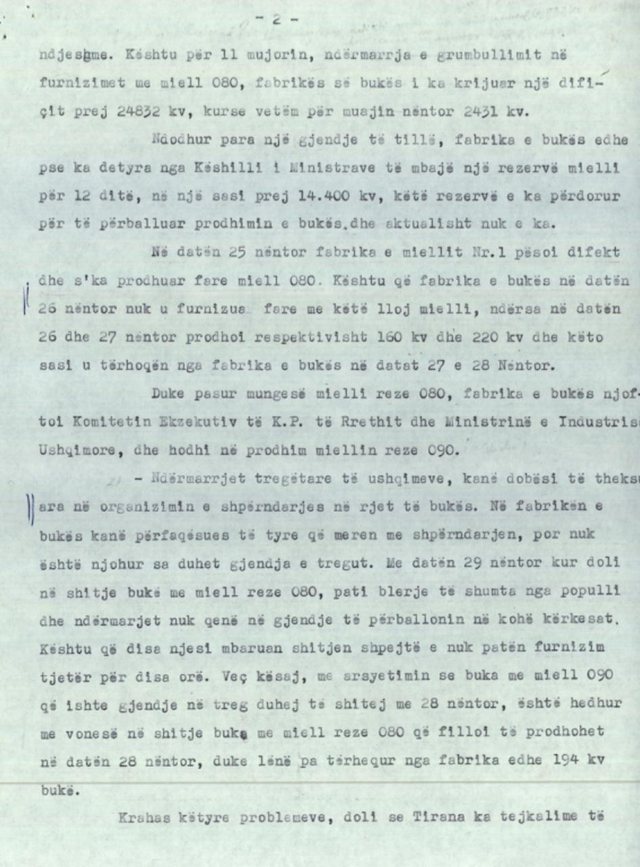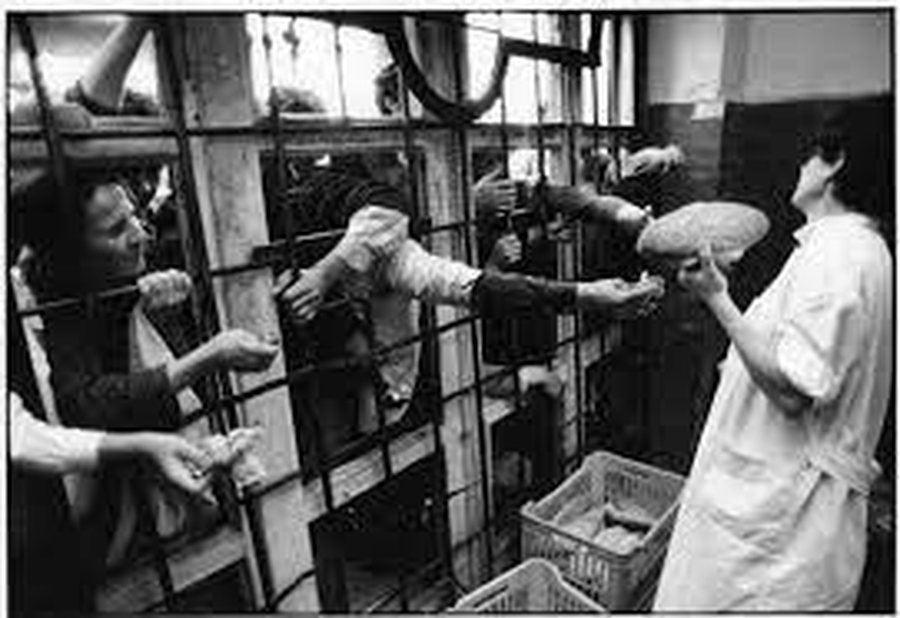
In the late 1980s, Albania was experiencing a deep economic crisis, with severe shortages of food and basic services, while the dictatorial regime was on the verge of collapse.
VNA brings an official document from the General Control Sector, dated December 9, 1988, describing a chaotic situation with a shortage of bread in Tirana, during the holidays of November 28–29. The report shows that the main flour factory had not been repaired for years and could not produce even half of the necessary quantity, forcing the authorities to distribute bread of poor quality and in limited quantities.
The event clearly illustrates the collapse of the centralized economic system at the end of the communist era.
PEOPLE'S SOCIALIST REPUBLIC OF ALBANIA
DISTRICT PROSECUTOR'S OFFICE
Tirana, 9/12/1988
GENERAL CONTROL SECTOR
SUBJECT: Regarding some irregularities in the bread supply.
(10.12.1988)
ATTORNEY GENERAL
FRIEND RAPPI MINO
TIRANA IS
According to your request, we verified the problem of Tirana's bread supply during the holidays of November 28–29 and, in conclusion, we inform you as follows:
On November 27, the food trading company in Tirana put on the market 550 kilos of bread with 090 rye flour (4 lekës) and 400 kilos of bread with 080 rye flour (5 lekës).
On November 28, a quantity of 818 kv of bread with 090 flour was put on the market, while on November 29, a quantity of 800 kv of bread with 080 rye flour was put on the market. On the 29th, for several hours, some sales units were left without supply. The reasons for such a disruption in the supply of bread for the holidays (without excluding the possibility of hostile work) are numerous, but we believe the most important are:
• Flour Factory No. 1 of the collection enterprise has not been repaired for three years. As a result of this situation, but also of poor work organization, this factory is unable to meet the daily flour production plan. From the data we administered, it turned out that, out of the 545 kv of flour that is the daily production plan, it has produced only 125–150 kv every day, thus creating significant deficits. Thus, for the 11-month period, the collection enterprise in flour supplies 080 to the bread factory has created a deficit of 24,852 kv, and for the month of November alone 2,451 kv.
• Faced with such a situation, the bread factory, although it has a duty from the Council of Ministers to maintain a flour reserve for 12 days, in an amount of 14,400 kv, has used this reserve to cope with bread production, and currently does not have it.
• On November 25, flour factory No. 1 suffered a defect and did not produce any 080 flour. So, the bread factory, on November 26, was not supplied with this type of flour at all, while on November 26 and 27 it produced 160 kv and 220 kv respectively and these quantities were withdrawn from the bread factory on November 27 and 28.
Having a shortage of reze 080 flour, the bakery notified the Executive Committee of the District CP and the Ministry of Food Industry and put reze 090 flour into production.
